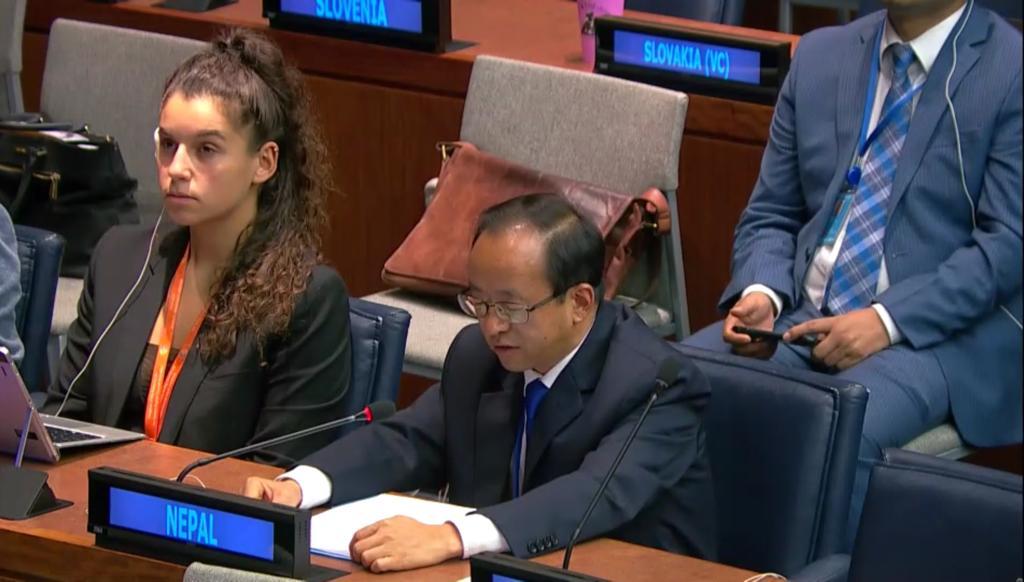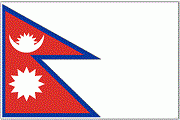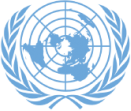
Mr. Chairman
As this is the first time my delegation is taking the floor, I wish to congratulate you and other Bureau members on your respective elections.
I assure you of my delegation’s full support in the discharge of your responsibilities for successfully steering the session.
Mr. Chairman,
Nepal has a proud history of being an independent State throughout history. It has never been colonized.However, our ancestors had to make great sacrifices to preserve Nepal’s sovereignty and territorial integrity.
Our history of the struggle to protect our independence energizes our conviction to stand firmly on the issues of decolonization.
Ever since it's admission to the United Nations, Nepal has always supported decolonization. We condemn colonization in any form or manifestation.
We believe that the colonization and foreign domination under any pretext are against the fundamental principles of the UN Charter.
They are also in contradiction with the Declaration on the Granting of Independence to Colonial Countries and Peoples as well as the Universal Declaration of Human Rights.
Nepal appreciates the critical role played by the United Nations, particularly, through the Special Committee on Decolonization.
Despite the significant progress, the Special Committee still has 17 Non-Self-Governing Territories (NSGTs) on its agenda.
The progress made in the last few years has not been encouraging. The Committee must undertake all possible measures to speed up the actions to fulfill its mandate. Nepal remains committed to engaging constructively in this regard.
Mr. Chairman,
The UN General Assembly, through its resolution 1514 (XV) of 1960, clearly articulated that the subjection of peoples to alien subjugation, domination, andexploitation constitutes a denial of fundamental human rights.
Not only is it contrary to the Charter of the United Nations but it is also antithetical to today’s civilized human conscience.
In light of this, it is unfortunate that even today nearly two million inhabitants of 17 Non-Self-Governing Territories are struggling for their independence.
Nepal expresses its support and solidarity to them in their struggles.
As we approach the end of "the third international decade for the eradication of colonization (2011-2020)", the United Nations and the member states should make every effort to ensure that this international decade doesn’t end in vain. We must act to break the status quo.
The United Nations, during seventy- four years since its establishment, has become a flag bearer in promotion of peace, development and human rights.
The member states are collectively implementing the 2030 Agenda for sustainable development with a vision of achieving a peaceful and prosperous world thereby‘leaving no one behind’.
How can we realize this vision by leaving behind two million people struggling for their independence?
Mr. Chairman,
Nepal believes that the international community should take up the shared responsibility for the realization of the complete eradication of colonialism.
Moreover, as called upon by the GA resolution 65/119 on "Third International Decade for the Eradication of Colonialism", the administering powers of these NSGTs should proactively cooperate with the Special Committee to pursue and implement a course of decolonization.
I thank you for your attention.


